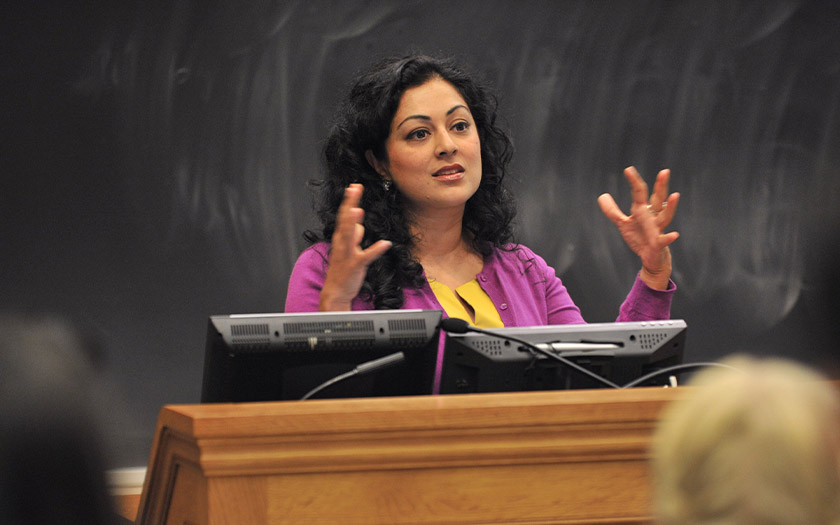
Ford School professor Shobita Parthasarathy says Americans' consensus belief in the science behind anti-COVID-19 measures is at risk. In an article in Times Higher Education published May 14 entitled "Science ‘risks coronavirus backlash’ as it is drawn into politics," she says that while the US public still supported social distancing measures “by a large margin” − an implicit vote of trust in science – there were now hints in the US that belief in the necessity of the measures was polarising along partisan lines, like it had for climate change. Parthasarathy is the Director of the Science, Technology, and Public Policy Program at the Ford School.
The article states "another risk to trust in science is the narrative, stoked by [President Donald] Trump, that the coronavirus originated not in a wet market but rather in the Wuhan Institute of Virology. A poll at the end of March found that one in five Britons believed that the virus came from a lab in China."
“If that becomes the dominant story, that will definitely affect universities,” says Parthasarathy.
To see the full article, click here.
Shobita Parthasarathy is a Professor of Public Policy and Women's Studies, and Director of the Science, Technology, and Public Policy Program, at University of Michigan. Her research focuses on the governance of ethically and socially controversial science and technology, particularly in comparative perspective. She is also interested in how technological innovation, and innovation systems, can better achieve public interest and social justice goals. She is the author of numerous articles and two books: Building Genetic Medicine: Breast Cancer, Technology, and the Comparative Politics of Health Care (MIT Press, 2007) and Patent Politics: Life Forms, Markets, and the Public Interest in the United States and Europe (University of Chicago Press, 2017). Her current research explores the intersection of gender, technology, and international development, with a focus on India. Findings from Building Genetic Medicine influenced the 2013 US Supreme Court decision prohibiting patents on isolated human genes.
